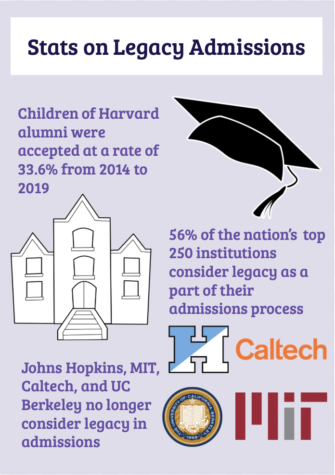Understanding the Implications of Kanye West’s Antisemitic Comments
Rapper Kanye West, legally referred to as Ye, recently faced severe backlash in regard to anti-semitic comments made on social media platforms like Twitter and Instagram. Several top brands, athletes, and corporations associated with Kanye, like Adidas, have ended long-standing relationships with him. As a result, West is no longer recognized as a billionaire on Forbes’ list, a status marker he has enjoyed since 2020.
Kanye’s initial involvement in recent controversy began on October 3, when he held a private show for 100 guests during Paris Fashion Week. West was photographed multiple times wearing a “White Lives Matter” t-shirt, criticized by many as a fascist misappropriation with intentions to minimize the Black Lives Matter movement. Many were especially offended since White Lives Matter is considered a neo-Nazi group.
As someone who didn’t really listen to Kanye West before his October controversies, I have still struggled a little each time I hear one of his songs. Even before his antisemitic comments, Kanye West had firmly established an infamous reputation for himself, spanning all the way to the beginning of his career. Whether it be his avid support for Donald Trump or stage crashing Taylor Swift when she was only 19, I have always been wary about my support for Kanye West, and have approached his content with an air of caution. The antisemitic posts and blatant display of the White Lives Matter movement were enough for me to really dial down the amount of Kanye music I want to listen to.
On October 8, West posted anti-semitic comments to Twitter and Instagram, violating policies against hate speech on both platforms. The tweet read, “I’m a bit sleepy tonight but when I wake up I’m going death con 3 On JEWISH PEOPLE.” He later posted more hate directed at the Jewish community, “You guys have toyed with me and tried to blackball anyone who opposes your agenda.” A little while later on Instagram, Kanye accused record producer Sean “Diddy” Combs of being influenced by “the Jewish people.”
On October 15, Kanye claimed on a podcast that George Floyd died from the drug fentanyl and that the police officer’s knee “wasn’t even on his neck like that.” He has consequently been sued by Floyd’s daughter for the comment. Worse yet, Kanye has repeatedly failed to apologize for his actions in this case and all others. In an interview with Piers Morgan, West said that he was, “sorry for the people that I hurt” in his “death con 3” tweet, but when pressed further, admitted that he was “absolutely not” sorry for the post.
In response, the Anti-Defamation League addressed Kanye’s posts as, “deeply troubling, dangerous, and antisemitic, period. There is no excuse for his propagating of white supremacist slogans and classic antisemitism about Jewish power, especially with the platform he has.” As a consequence of his actions on social media, West was locked off Twitter, and Meta restricted his Instagram account entirely. Even his ex-wife, Kim Kardashian, issued a Twitter statement condemning West’s posts, “Hate speech is never OK or excusable. I stand together with the Jewish community and call on the terrible violence and hateful rhetoric towards them to come to an immediate end.”
Days later, Kanye appeared on Tucker Carlson’s Fox News show and made conspiratorial comments that were not aired by the channel. The footage was later made public and it was revealed that West made unfounded claims about abortion along with fatphobic comments against the singer, Lizzo. He defended the decision to wear the “White Lives Matter”’ t-shirt, “I thought the shirt was a funny shirt; I thought the idea of me wearing it was funny…Just a black man stating the obvious.” To add to his quickly growing list of anti-semitic comments, West claimed that Trump’s son-in-law, Jared Kushner, who is Jewish, negotiated Middle-East peace deals “to make money.”
Kanye’s claim that Kushner’s actions between Israel and Arab nations were based around the sole purpose of financial gain, plays into harmful antisemitic tropes surrounding Jewish control of financial institutions and money. He implies that the Jewish communities leverage their financial influence for corrupt and selfish purposes, an extremely inappropriate message to be spreading to impressionable fans.
“I think Kanye West specifically has a lot more influence than any other celebrity in the industry right now,” said junior, Phoebe Abrahms, “He’s a rapper and he’s related to the Kardashian family and all this other different stuff that keeps him very relevant. He’s very prominent and a lot of people follow him and a lot of people listen to his music. He’s one of the most popular people who could be saying something hateful and I think it does affect people’s views because there are people who are just going to listen to whatever they read on social media. If they read a tweet like that and they already idolize the person and they’re not thinking, then they could be influenced to believe that rhetoric. It’s not like every person who reads something like that is going to be influenced to think in the same way, but some people will.”
Several white supremacist platforms and groups located in cities across the United States have fed off of West’s negative behavior, using it to further their own fascist agendas. The Goyim Defense League, an American white supremacist, anti-semitic hate group, recently unfurled a banner in a Los Angeles flyover that read, “Kanye is right about the Jews.” Members reportedly performed a Nazi salute as the banner flew overhead.
The dangers of figures like Kanye West spreading anti-semitic hate are extremely prevalent, especially in the context of our own communities. Just as Jewish hate exploded on social media and across white supremacist platforms, a chair detailing a swastika was discovered in the Zetkov Center. Even though Hackley is unsure of when exactly the symbol was drawn, its discovery only echoes the damage that antisemitic messages from public figures can have on young kids who are easily inspired to commit acts of hatred they don’t fully understand. It is very scary to confront the idea that antisemitism has not only infiltrated modern media but also idealized ‘safe spaces’ where students come to receive an education.
Despite the fact that there is no known evidence of Kanye West’s allegiance to an organized extremist group, his recent behavior follows similar dialogue pushed by anti-semitic groups, especially his argument that black people are Jews, and therefore cannot be antisemites.
The Black Hebrew Israelite (BHI) movement maintains a strong foundation of followers who believe that black people, rather than Jewish people, are the true descendants of the biblical Israelites. It is important to clarify that BHI followers have rejected Judaism and are not the same as black Jews or Jews of color, rather referring to themselves as the “true Jews.” The BHI questions whether the current Jewish community has any actual relationship to the Israelites of the Old Testament.
West’s defense of his actions, stating that he is unable to be antisemitic because black people are Jews, is highly reminiscent of harmful statements made by followers of the BHI, who have referred to the community as “imposters” or “fake Jews,” and believe that they are all part of a conspiracy to silence and rob black people of their true religious heritage. The ideology of the BHI is shared by members of the Nation of Islam (NOI), which is the largest black nationalist organization in the United States. The NOI is infamous for its extensive history of bigotry and antisemitism. Through his tweets, comments, and interviews, Kanye has consistently alluded to the NOI belief that all Jewish people control media through tyrannical power, this includes the music industry.
“It’s crazy to see, especially as a Jewish person in New York and the community that I live in, a lot of the time it’s easy to forget that there are instances where it isn’t just a microaggression, but publicized hate from large groups of people and on large banners in large cities,” said Phoebe.
Despite my personal choice to limit the amount of Kanye’s music I listen to, I would not say that I judge or completely condemn other people for remaining fans or following West’s music career. Those who choose to respect the art and not the artist should not be labeled as antisemites as long as they don’t defend Kanye’s bigotry.
Senior Steven Lee stated, “I think that what an artist does outside of their art shouldn’t be used to evaluate it. I think that it makes sense to not support someone’s art because you don’t agree with what they say, but I won’t suddenly stop liking a piece of art because of the artist. However, I do agree with the sentiment of not supporting the artist if you don’t support their values.”









Aiden W. • Dec 13, 2022 at 10:39 pm
Great Article ?